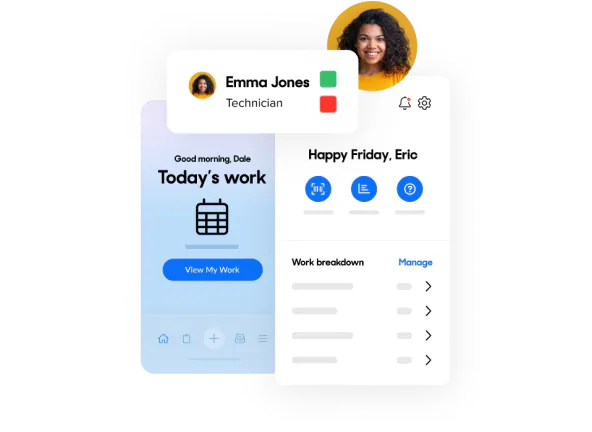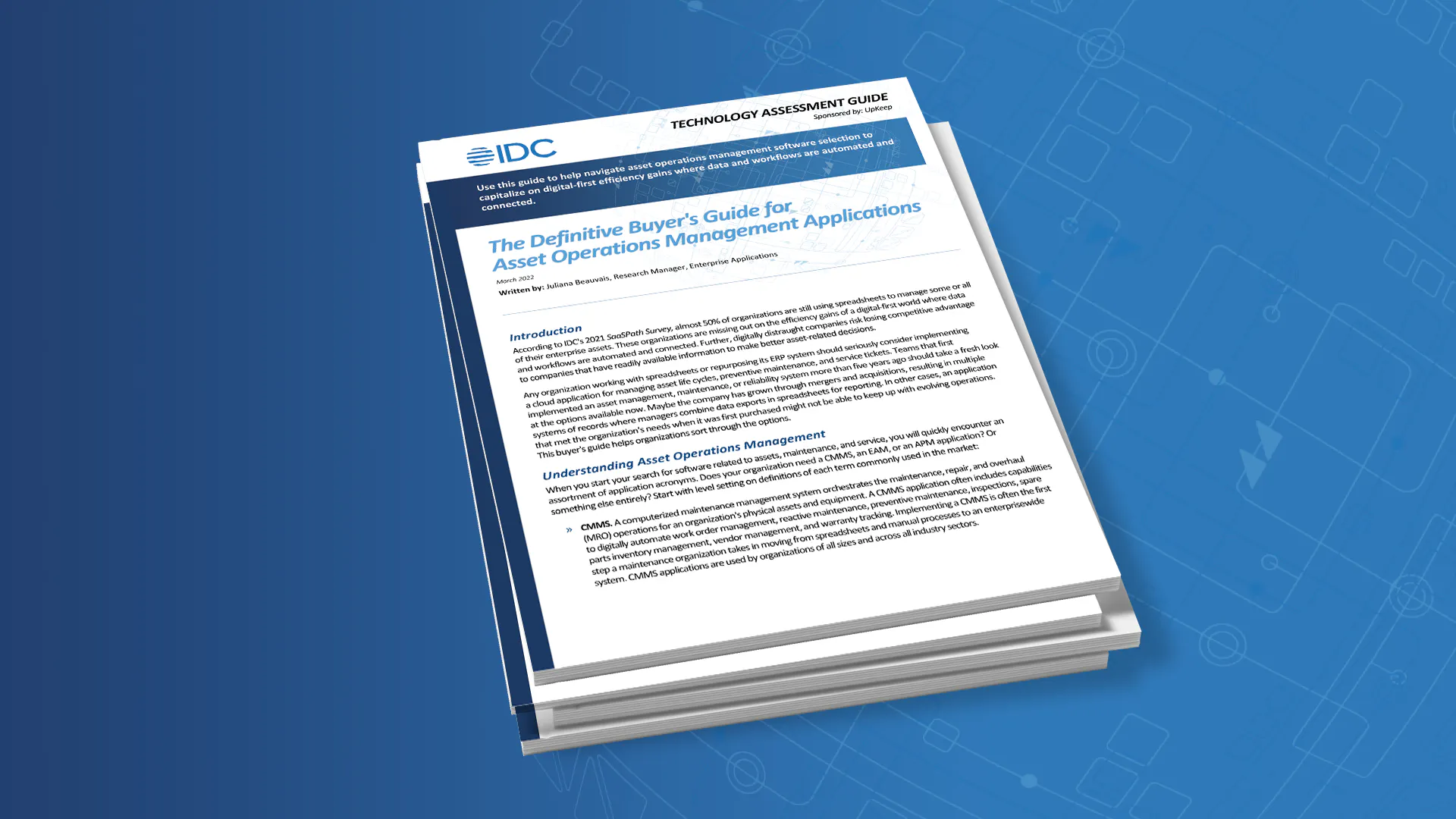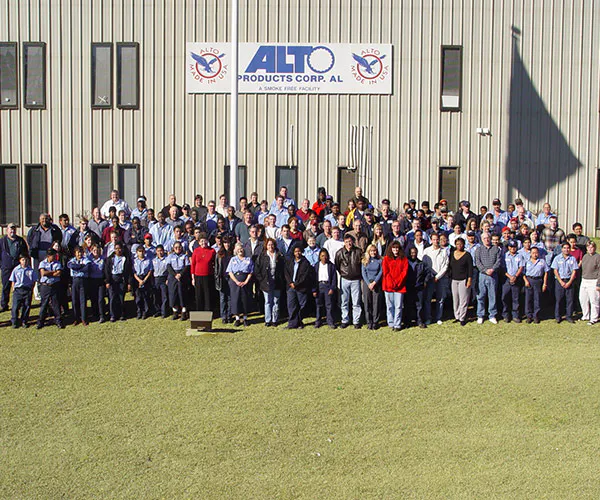Sunset Grown Team Receives Work Orders Faster with UpKeep
Before UpKeep, SunsetGrown’s pen and paper system made it difficult to notify their maintenance team of any request – small or large. After implementing UpKeep, submitting work order requests is easier than ever. Day-to-day maintenance operations have been streamlined, and requests are being fulfilled before they become problems.
Browse Case Studies
Looking for something specific? Click on a category below!
Showing 0 of 65
Asset Management for Equipment That You Can Count On With Customer-Proven ROI
Bring cost and revenue to the forefront under one umbrella to look past WHAT teams are doing to the impact they are making. In this Forrester Wave™ report featuring UpKeep, a manufacturing company was able to achieve incredible results, including:
$1.4M Savings 50% Increase in preventative work to avoid production downtime

Want to learn more? Check out our eBooks

Buyer's Guide
The Definitive Buyer's Guide for Asset Operations Management Applications
Use this guide to help navigate asset operations management software selection to capitalize on digital-first efficiency gains where data and workflows are automated and connected.

IDC Analyst Connection: How Asset Operations Management Gets a Seat at the Revenue Table
IDC Analyst Juliana Beauvais answers questions posed by UpKeep on how shifting asset operations from a cost center to a revenue-generating asset operations management center can build trust among operations, reliability, and maintenance teams.

Asset Operations Management: The Future of Maintenance, Reliability, and Operations
Asset Operations Management threads together an organization’s technician services, passive and active data, and unique operational blueprint to make it easier and faster for every employee to get what they need to do their jobs successfully.
4000+ Companies rely on asset operations management







